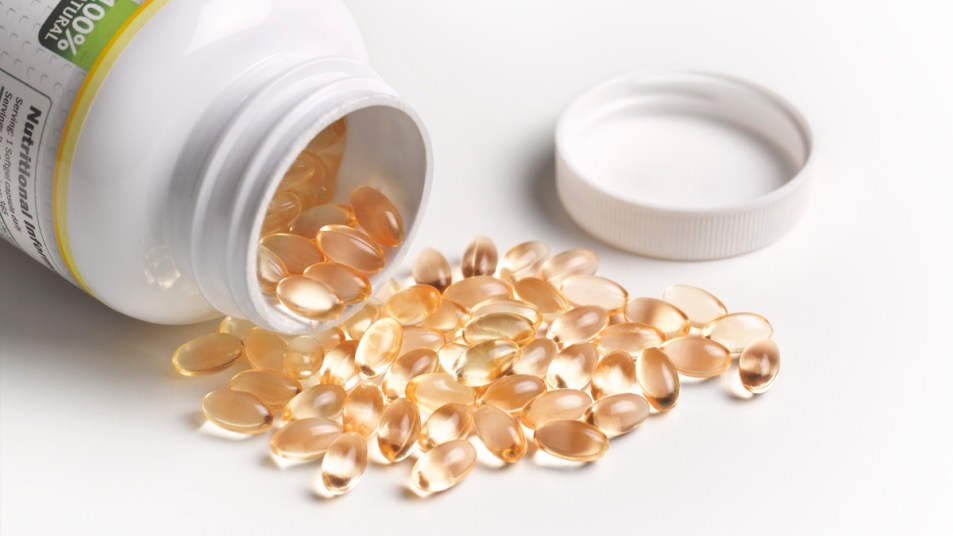If you take vitamin D,you may need this other vitamin to reduce calcium clogging in Arteries.

Throughout my life, I’ve heard that vitamin D is the best vitamin you can take to promote better health. It helps the immune system function to the best of its ability, it contributes to stronger bones, it gives our mood a huge boost, and it may even lower our risk of certain cancers. But I never knew that taking a lot of vitamin D without taking vitamin K might not be ideal. A growing body of research suggests that taking vitamin D with K2 is the best way to boost bone strength, and may help prevent calcium-filled plaque from building up in arteries.
How do vitamin D and vitamin K work in the body?
As you likely know, vitamin D is important for bone strength because it increases calcium absorption. Without this essential nutrient, people may experience a loss of bone mineral density, which weakens the bones and can cause fractures.
However, vitamin D isn’t the only nutrient that improves the health of our bones. A 2018 scientific paper shows that vitamin K plays a crucial role in maintaining bone strength. According to the study authors, it can prevent cells vital to bone growth from dying and also stimulate them to multiply.
Furthermore, vitamin K can help the body pull calcium into the bones and teeth — something that vitamin D cannot do. This is because vitamin K triggers a protein called osteocalcin to get to work. Once osteocalcin — which is dependent on vitamin k — activates, it helps accumulate calcium in the bones and teeth.
2015 study from Integrative Medicine: A Clinician’s Journal states that vitamin K2 may reduce arterial calcification — that is, a buildup of calcium-containing plaque in the arteries — because it may help stop calcium from sticking to artery walls. It may also reduce arterial stiffness.Why Vitamin K May Help Reduce Calcification in Arteries
By helping to draw calcium into the bones and teeth, vitamin K may help reduce the amount of calcium in soft tissues, like the arteries. 2015 study states that vitamin K2 may reduce arterial calcification — that is, a build up of calcium containing plague in the arteries — because it may help stop calcium from sticking to artery walls. It may also reduce arterial stiffness.
However, this research does mean that vitamin K may improve your arterial health if you are taking calcium supplements. As vitamin D promotes higher levels of calcium in the body, it may therefore be wise to take vitamin D with vitamin K2.
How much vitamin D with vitamin K2 should you take?
Research suggests that a good starting point for vitamin K2 supplementation is 100 micrograms daily. The daily requirement suggested by the National institute of health (NIH) for vitamin K is 122 micrograms for women. Unfortunately, that recommendation doesn’t specify whether to take vitamin K1 or K2, or both.
In addition, the recommended daily allotment for vitamin D for adults aged 19 to 70 years is 600 IU, or 15 micrograms. For adults aged 71 and older, the recommended amount is 800 IU, or 20 micrograms. The safe upper limit is 4,000 IU. If you’re vitamin D deficient, your doctor may have prescribed a higher dosage. That’s okay! As long as you’re sticking to your recommended dosage, you’ll be good to go.
Ultimately, taking both vitamins in moderation may do great things for your health! Just be sure to speak with your doctor before adding supplements to your daily regimen. While these vitamins are essential nutrients, they aren’t ideal for everyone in supplement form and may interact with other medications or cause side effects. A doctor will be able to assess your current dietary needs and determine whether vitamin D and K supplements are ideal for you.


Comments
Post a Comment